As the world population ages, so does the number of people with age-related illnesses such as dementia. This risk is predicted to triple by 2050, affecting millions worldwide, and impacting individuals, families and healthcare systems. In the quest for early detection, researchers are for example using a combination of music and neuroimaging.
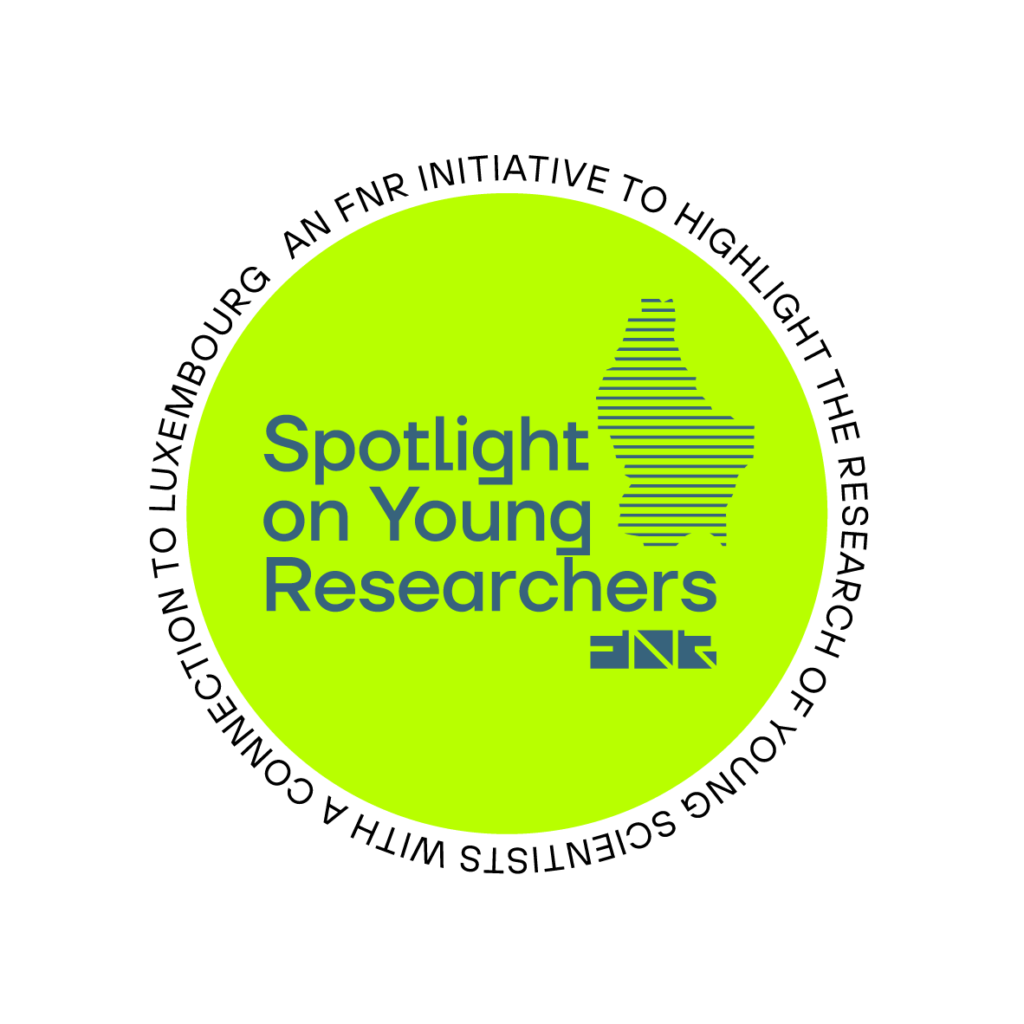
Dementia is a neurodegenerative disease characterised by a decline in cognitive abilities affecting memory, thinking, and behaviour. Affected individuals ultimately lose their ability to do things on their own. Alzheimer’s Disease (AD), the most common form of dementia, is one of the major challenges for society in the 21st century.
While progress has been made in research on Alzheimer’s Disease (AD), big challenges still lay ahead.
“For example, although scientists are working hard to find treatments, those available now are not able to fix the structural damage in the brain or slow down memory loss very well, especially in the later stages of the disease,” explains Elisa Serra, a neuroscientist and AFR PhD candidate at Oxford University in collaboration with Aarhus University.

The challenge of detecting Alzheimer’s Disease early
One key challenge for scientists is to find a way to detect and intervene when the disease is in its early stages, before significant brain damage occurs.
“This way, treatments which slow down pathological processes can work better and help patients live better lives. This can be especially challenging, since the disease can start changing the brain decades before any signs are seen in behaviour. ”Elisa Serra Neuroscientist and AFR PhD candidate at Oxford University in collaboration with Aarhus University.
Scientists are using a variety of methods in their effects to identify early signs of the disease.
“Some involve taking samples from inside the body or using special scans like PET scans to catch underlying changes before people start showing signs of the disease behaviourally.”
The complex workings of the brain, coupled with the still limited grasp of how the disease develops in early stages, as well as the need for better, easier ways to detect it in older adults are key obstacles standing in the way of getting this disease under control. Current diagnosis methods are invasive.
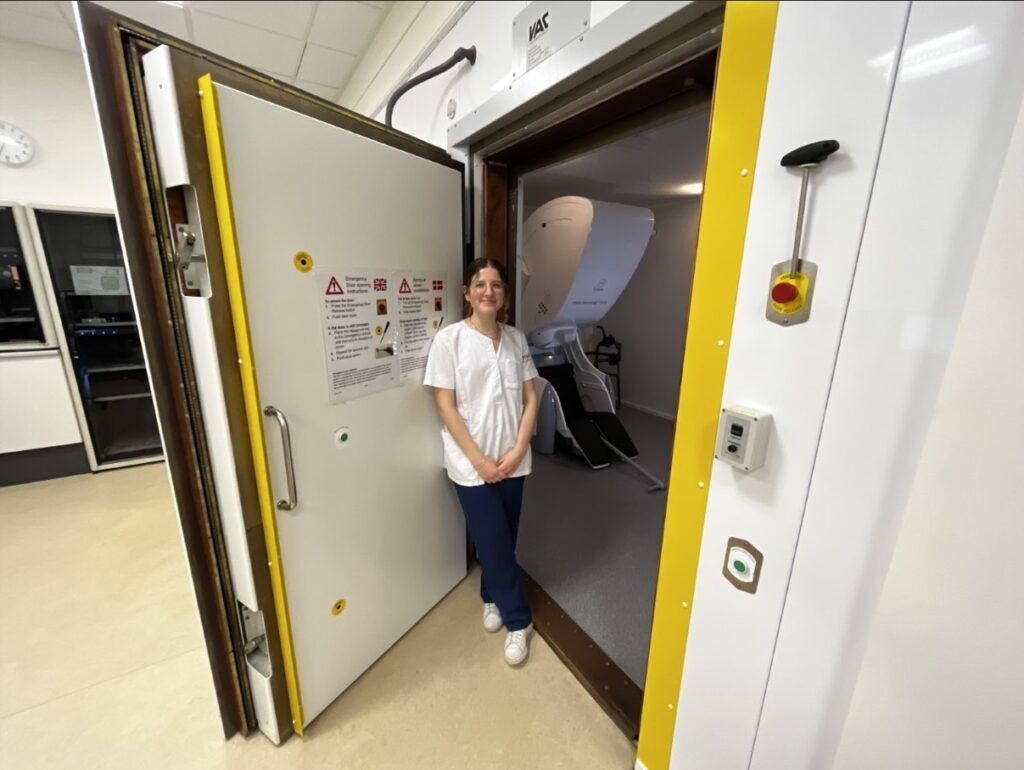
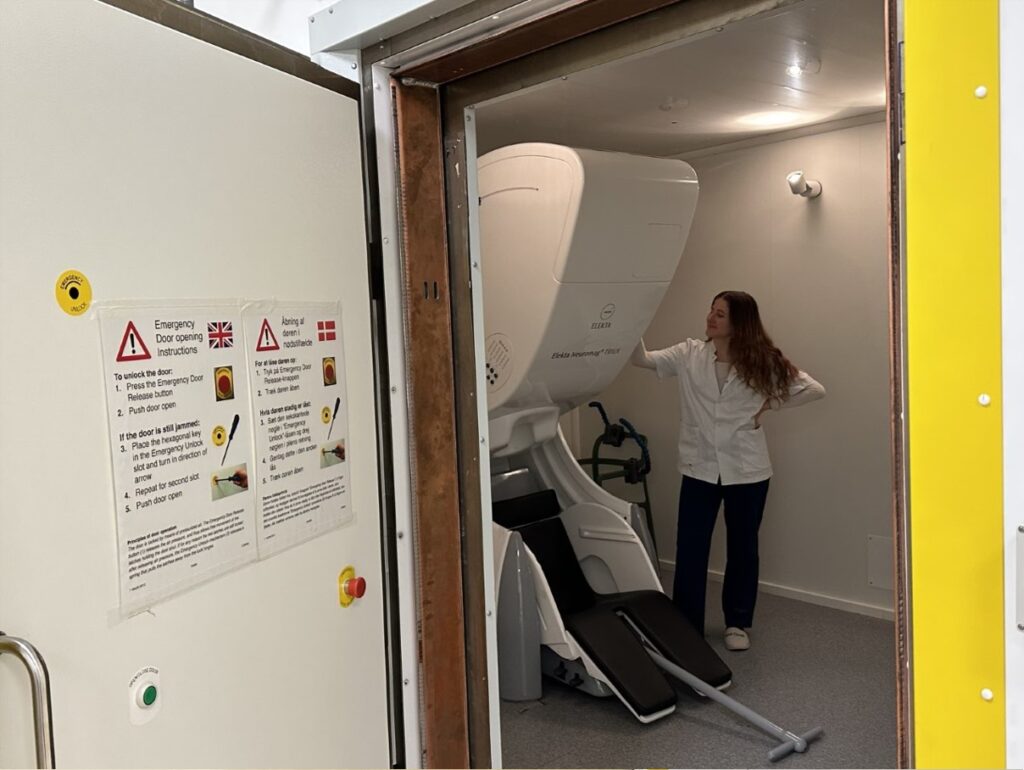
Combining music with neuroimaging
“Our project, PRELUDE, seeks to tackle these challenges by using non-invasive tools. In particular, using a machine called Magnetoencephalography (MEG) to closely read how the brain works, millisecond by millisecond, while it tries to solve musical games that activate different memory systems.”
By comparing how the brains of healthy young and older adults work to those at different stages of dementia, the goal is to find and understand early changes in the brain linked to the disease.
““Essentially, we are looking for unique brain patterns in response to these games that are only seen in people with dementia. By studying changes in memory, we hope to help creating new ways to diagnose Alzheimer's Disease early.” ”Elisa Serra Neuroscientist and AFR PhD candidate at Oxford University in collaboration with Aarhus University.
The project PRELUDE uses music and advanced neuroimaging techniques to study early brain changes in AD.
“The research Centers and colleagues I work with have found the combination of musical games with MEG to be incredibly valuable in understanding how memory systems in the brain are affected by healthy ageing. This understanding will be crucial in interpreting the brain patterns we observe in individuals with dementia.”
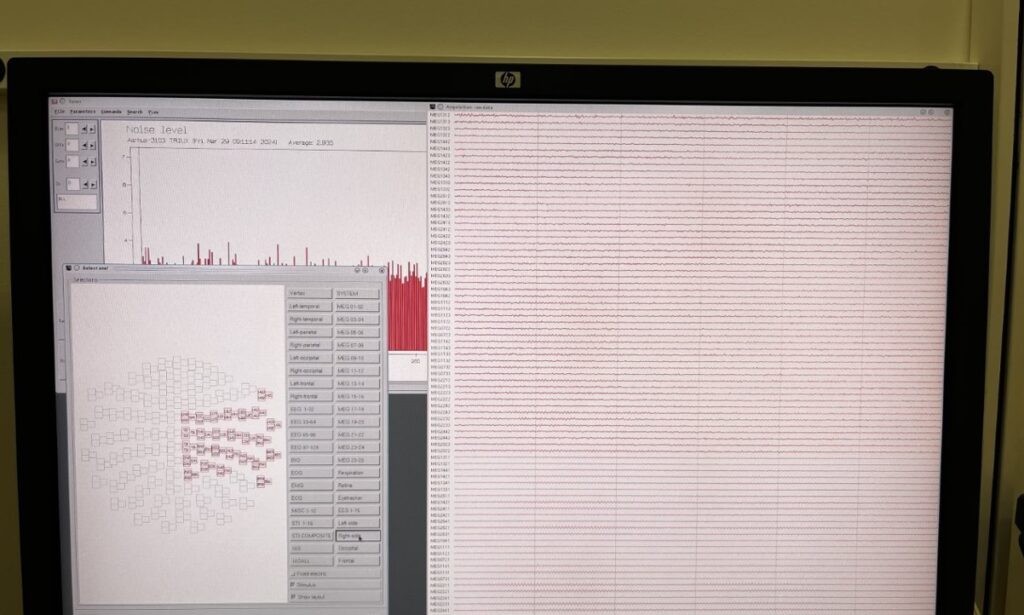
Elisa Serra is a neuroscientist and AFR PhD candidate at Oxford University (Prof Morten L Kringelback), in collaboration with Aarhus University (Prof Leonardo Bonetti).
MORE ABOUT ELISA SERRA
Describing her research in one sentence
“PRELUDE uses music and advanced neuroimaging techniques to study early brain changes in AD, aiming at early detection to improve intervention strategies for better patient outcomes.”
What guides her as a scientist
“Open-mindedness and creativity have always been the guiding principles in my work. To me, being open-minded means embracing diverse and occasionally surprising situations, while welcoming new perspectives with humility and creativity as I address my research questions. The Centers where I work have consistently allowed me to express this side of my identity with authenticity.”
What she loves about research
“What I love about research is the journey of bringing abstract ideas and concepts into something tangible. For instance, how a project proposal can evolve into a fully-formed research effort. Being part of the ecosystem of scientists, machines, resources, and participants that facilitate this transformation is incredibly rewarding.”
Mentors with an impact
“My supervisors, Prof. Morten L. Kringelbach and Prof. Leonardo Bonetti are two mentors I look up to as I continue defining myself as a researcher. As an early career scientist, it is inspiring to witness their dedication, integrity, and genuine curiosity daily. Their examples reaffirm my belief in the values of diligence and passion that drive the academic community.”
Where she sees herself in 5 years
“In 5 years, I envision myself and my team exploring questions that we have not even considered yet. I am excited to shape these new inquiries, as we continue to gather evidence, experience and new perspectives.”
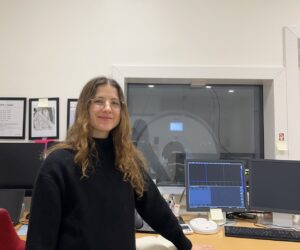
Related Funding Instruments
Related highlights
Spotlight on Young Researchers: Probiotics to the rescue
Billions of living microorganisms live in the human gut microbiome. Research has shown that an imbalanced microbiome plays a role…
Read more
Spotlight on Young Researchers: How multilingualism impacts learning numbers and mathematics
In an increasingly multicultural and multilingual society – especially in Luxembourg – it is key to ensure an educational system…
Read more
Spotlight on Young Researchers: The many research aspects of neurodegeneration
Alzheimer’s disease (AD), Parkinson’s disease (PD) and Dementia with Lewy Bodies (DLB) are the most frequent age-related neurodegenerative diseases and…
Read more
Spotlight on Young Researchers: Studying the immune cells of the brain to uncover their role in Parkinson’s disease
Parkinson’s disease (PD) is the fastest growing neurological disease in the world, affecting around 1-2% of the population above the…
Read more
Spotlight on Young Researchers: Artificial Intelligence for the Digitalisation of Courts
The field of Artificial Intelligence (AI) and Law is increasingly gaining interest due to the introduction of AI applications in…
Read more
Spotlight on Young Researchers: Enabling a deeper look at the metabolic dance
The rapidly evolving field of spatial biology allows for the study of how individual cells fit in the context of…
Read more